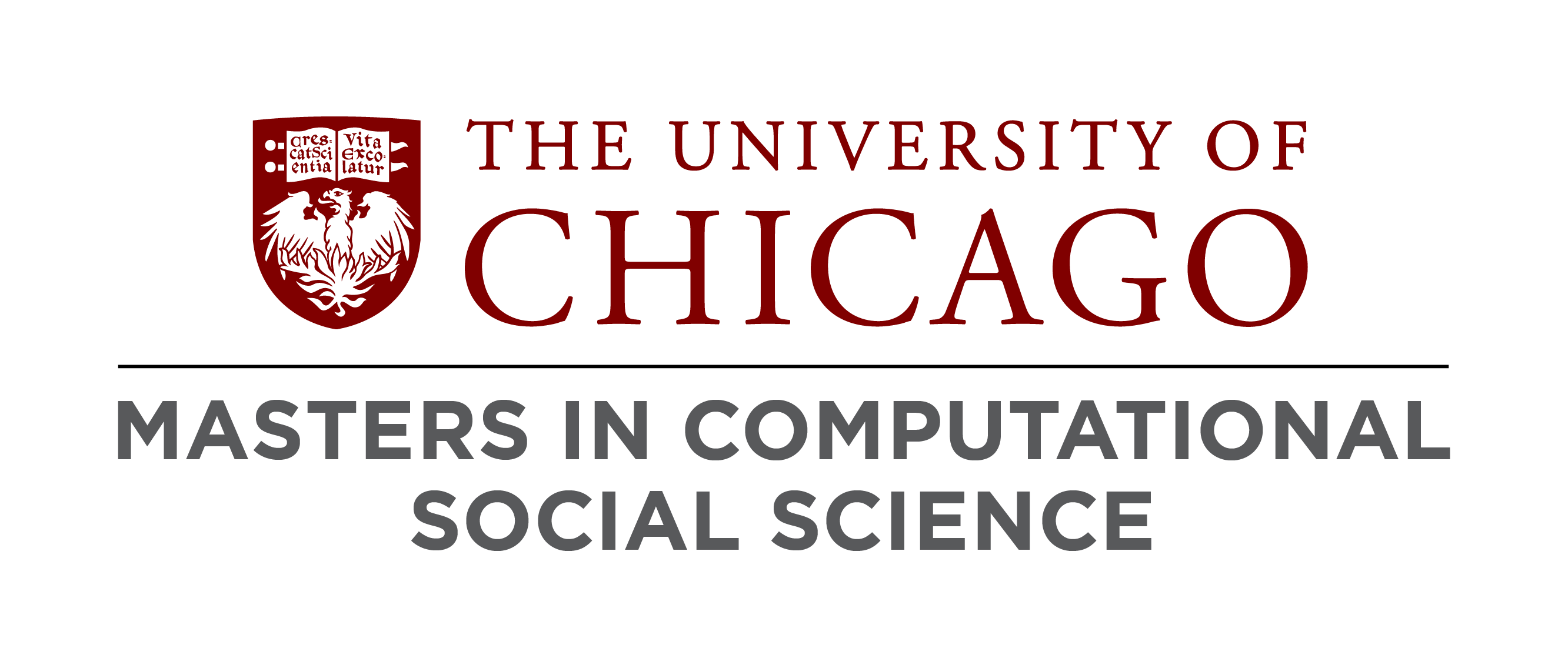Programs of Study

Our two-year Masters in Computational Social Science (MACSS) program draws on some of the latest innovations in machine learning, statistical inference, and Big Data analysis to answer fundamental questions about our social world.
The program was created in response to a growing need to incorporate digital technologies into social science research. Social scientists in the digital age can answer questions, collect observations, and conduct experiments at scales that were previously impossible using traditional research methods. At the same time, computational advances in AI and machine learning are increasingly influential in everyday social life – making an interdisciplinary dialogue between the computational and social sciences essential. Our commitment to this interdisciplinary dialogue is reflected both in the variety of backgrounds in our cohorts, as well as our diverse curriculum.
The MACSS curriculum provides students with solid foundations in data science and programming while fostering student-tailored research interests in the social sciences. Our students acquire the knowledge, skills, and expertise to innovate in and across social science fields. Our curriculum is flexible enough to accommodate students from diverse backgrounds. On one hand, students entering the program with little computational experience can learn these new skills starting with the basics, while developing a deeper expertise in social science areas of their choice. On the other hand, students with a significant computational background but limited exposure to social science inquiry can take advantage of more advanced methods coursework, while learning how to apply these in a social science context and exploring different topics. The program’s combination of computational tools and experience conducting social scientific research distinguishes our students and alumni from traditional data science programs.
Our 1st year cohort typically consists of 40 to 60 students with disciplinary backgrounds spanning the social, physical, and natural sciences. We have had students coming from fields as diverse as sociology, psychology, political science, philosophy, mathematics, physics, computer science, and engineering.
In addition to the general MACSS curriculum, we also offer a formal concentration in Economics. This concentration is run alongside the Economics concentration in the Masters of Arts Program in the Social Sciences (MAPSS)—it has a distinct curriculum and additional application requirements. There are no concentrations in the general MACSS program, but many students end up taking specialized coursework in specific disciplines (e.g.sociology, psychology, political science). Student coursework choices, however, are based on their individual research interests and the skills and methods they seek to utilize in their work. We encourage students to take courses across a range of departments and professional schools. All students who successfully complete the program earn a degree in computational social science.
MACSS is listed as a STEM designated degree by the U.S. Department of Homeland Security for the purposes of the STEM OPT extension allowing eligible students to apply. However, approval for STEM OPT is at the discretion of U.S. Citizenship & Immigration Services.

 THE UNIVERSITY OF CHICAGO
THE UNIVERSITY OF CHICAGO

